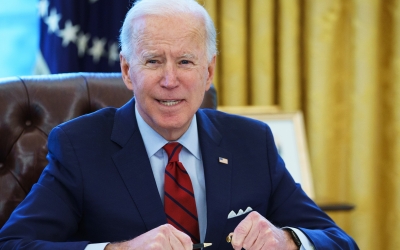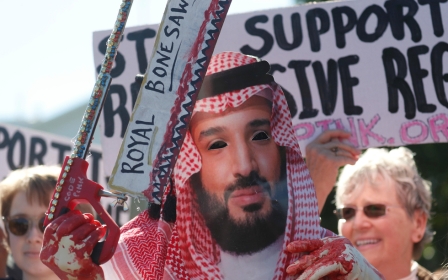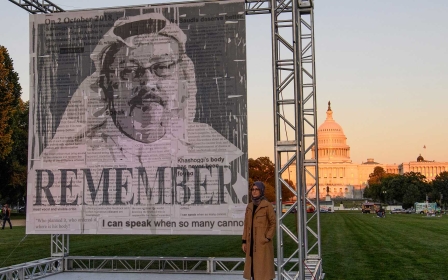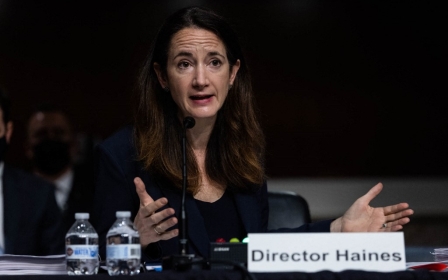Khashoggi: Saudi Arabia pressuring Turkey to shut down lawsuits
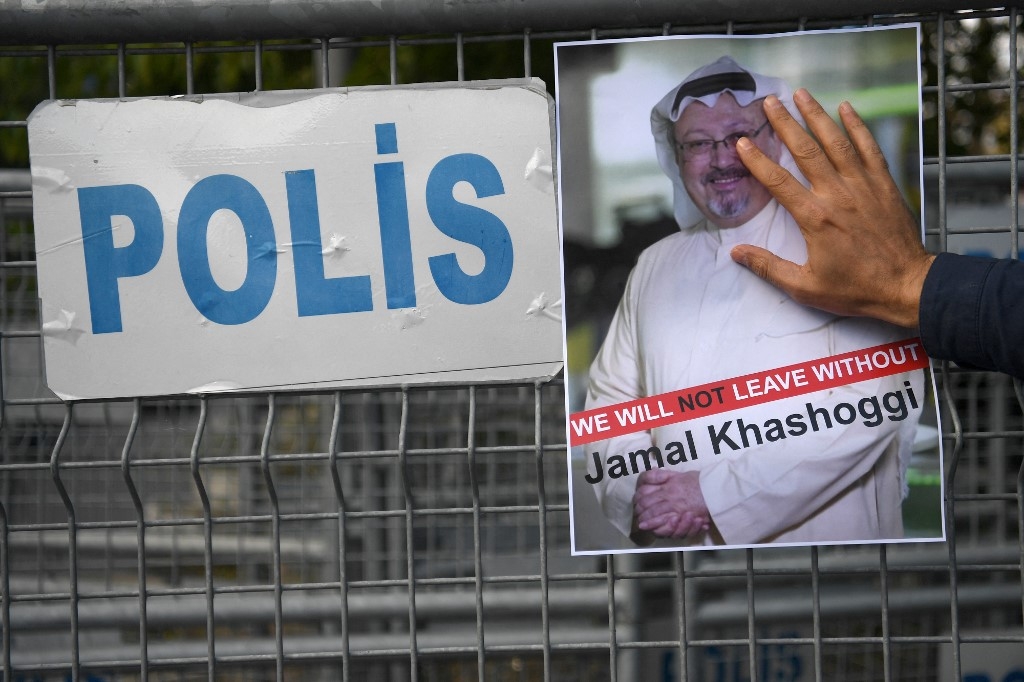
Saudi Arabia is pressuring Turkey to close two court actions over the murder of Jamal Khashoggi in the kingdom’s consulate in Istanbul, three sources with knowledge of negotiations have told Middle East Eye.
With Turkish President Recep Tayyip Erdogan expected to visit Riyadh in the coming weeks, three-and-a-half years after Saudi Arabia imposed a boycott on Turkish goods, Crown Prince Mohammed bin Salman is attempting to use the visit as leverage to get a definitive end to the Khashoggi affair.
“For MBS, it's all about Khashoggi. He is obsessed by it. It's personal. He blames Erdogan personally for getting America involved and for not closing the affair down within the first few days,” one source with knowledge of the negotiations told MEE, using a common nickname for the de facto Saudi leader.
'For MBS, its all about Khashoggi. He is obsessed by it. It's personal'
- Source with knowledge of negotiations
Turkey has already said it will transfer the case to Saudi judicial authorities, whose prosecution of Khashoggi's alleged killers has been widely declared a sham.
Last week, a Turkish prosecutor asked an Istanbul court to stop proceedings against the alleged killers, citing a lack of progress in apprehending the suspects, non-enforcement of Interpol red notices, and the absence of testimonies from suspects.
New MEE newsletter: Jerusalem Dispatch
Sign up to get the latest insights and analysis on Israel-Palestine, alongside Turkey Unpacked and other MEE newsletters
In December, Turkish prosecutors came close to catching a man they had reason to believe was one of Mohammed bin Salman's bodyguards and who was part of the murder team when he appeared in France.
A source told MEE that after heavy and persistent pressure from Turkish intelligence officials on their reluctant French counterparts a man whose passport was identical to the one used by Khaled Aedh al-Otaibi was arrested, including the number.
A 2019 UN report on the murder found that Otaibi, a member of the Saudi Royal Guard, was inside the Saudi consulate in Turkey during the October 2018 killing. He was seen accompanying Mohammed bin Salman during a trip to the United States in 2017, the report said.
The Saudi was released after the chief prosecutor in Paris ruled that the international arrest warrant for the 18 members of the kill squad used in the murder was “not applicable to him”. The Saudis claimed it was a case of mistaken identity.
'Pandora's box'
The court in Istanbul is due to rule on shutting down legal proceedings in Turkey on Thursday.
However, there remains a second lawsuit in a US federal court. This is filed by Khashoggi’s fiancee, Hatice Cengiz, and the US-based advocacy group Democracy for the Arab World Now (DAWN), which Khashoggi established and ran before his death.
This lawsuit, Turkish officials argue, is beyond their reach.
“Turkey is withdrawing the Khashoggi case in Istanbul and it is a legal decision,” one Turkish official told MEE, stressing that Ankara has no control over the US case and has not discussed or negotiated over cases outside Turkey with Saudi authorities.
“Turkey doesn’t have any purview over the foreign court cases against the Saudi crown prince,” he added.
“It is solely within Hatice Cengiz’s powers whether to pursue those cases. However, many people, including Khashoggi family members, have been pressuring Cengiz to drop all cases. I wouldn't be surprised if she did that. But she could also get more adamant on pressing on. It is up to her.”
'This has historic implications. We are trying to do what our government has failed to do'
- Sarah Leah Whitson, Democracy for the Arab World Now
The judge in the lawsuit in Washington DC has yet to rule whether the court has jurisdiction. If he does, the lawsuit could open what one source described as a “pandora’s box” of information, with the court potentially demanding the crown prince give evidence in person.
Turkish intelligence, which secured an audiotape of the killing, and the CIA, who verified the recording, have both said that Mohammed bin Salman sanctioned the operation to kill and dismember Khashoggi.
But the plaintiffs in the US lawsuit are asking for never-before-seen material from US law enforcement, intelligence, and administration agencies to be unleashed.
The hope, say the plaintiffs, is that the disclosures will prove, in detail and in public, that the murder was ordered from the very top.
“Everyone who cares about accountability should be doing everything they can to support us,” said Sarah Leah Whitson, DAWN’s executive director. “This has historic implications. We are trying to do what our government has failed to do.”
Lawyers for the plaintiffs argue the case should be heard in a US court because critical steps that Saudi officials allegedly took to lure Khashoggi - who was a Virginia resident - to Turkey, occurred in the US.
They also claim that the murder was aimed at shutting down the work Khashoggi intended to do from the US “that was especially threatening to defendants precisely because it occurred in the United States and so touched defendant’s economic and political interests there”.
Lawyers for the Saudi crown prince contend that the case should be dismissed and have cited a case involving Hungarian Jews whose property was stolen during the Holocaust to argue that the kingdom of Saudi Arabia is immune from being sued in this case.
In a legal document filed last month, the crown prince's lawyers noted that in that particular case it was argued that a Hungarian agency - not the state of Hungary - should be held accountable for the crimes.
High stakes
If the federal lawsuit goes ahead, it threatens to keep the Khashoggi murder in the public eye - and undermine million-dollar PR and lobbying campaigns to rehabilitate Mohammed bin Salman's image.
This is exactly what the crown prince, who has repeatedly denied any involvement in what he frames as a rogue operation, is trying to avoid.
But it could also prove to be just as problematic for the Biden administration. President Joe Biden himself cannot tolerate the crown prince, a US official said, speaking on condition of anonymity. But Washington is equally concerned with keeping Saudi Arabia on its side amid a campaign to lower global oil prices.
If the judge rules that the case can be heard, Biden will be forced to decide whether to grant the Saudi crown prince immunity, despite previously claiming that he will only deal with and acknowledge King Salman as head of state.
Late in his tenure, Donald Trump’s administration considered providing immunity to the crown prince in another federal lawsuit, in which he is accused of trying to kill Saad al-Jabri, a former top Saudi intelligence official, in Canada, days after Khashoggi’s murder.
Trump left office without granting immunity, which would have also applied to DAWN and Cengiz’s lawsuit.
Now Biden, who only last month had a phone call rebuffed by the crown prince, will face the question of immunity among a set of demands Saudi officials have reportedly presented to Washington in recent weeks.
“The pressure is high on Biden,” Whitson said. However, she added, Biden could tell the Saudis “if you don’t want to go to trial, settle the suit”.
Material to be gathered as part of the trial would also examine the role of the United States in the murder, what and when US officials knew about threats to Khashoggi, and what they did following his murder to “help or hinder accountability”, Whitson said.
Rekindling ties
In recent months, Turkey has been working to improve relations with several regional powers that it had previously held antagonistic relations with, including Saudi Arabia, the UAE, Egypt, and Israel.
As ties with its rivals warm, Ankara has been seeking financial and economic boons to offset the continued pressure Turkey is feeling over the flagging lira and high inflation.
The crown prince of Abu Dhabi, Mohammed bin Zayed, was first in with a private offer in one-to-one talks with Erdogan to invest $100bn in the Turkish economy. A package of $10bn was eventually announced. But talks with Saudi have gone slower.
'I ask the Turkish authorities and courts to refuse to end the case. You must be independent and strong'
- Hatice Cengiz, Khashoggi's fiancee
Cengiz has said that she was “heartbroken” to hear a Turkish prosecutor recommend that the case be transferred to Saudi Arabia, and holds out hope that Turkey will continue with its proceedings.
“No good will come of sending the case to Saudi Arabia. We all know the authorities there will do nothing. How do we expect the killers to investigate themselves?” she said in a statement.
“I ask the Turkish authorities and courts to refuse to end the case. You must be independent and strong in upholding the rights of the victims for truth and accountability.”
Middle East Eye delivers independent and unrivalled coverage and analysis of the Middle East, North Africa and beyond. To learn more about republishing this content and the associated fees, please fill out this form. More about MEE can be found here.


